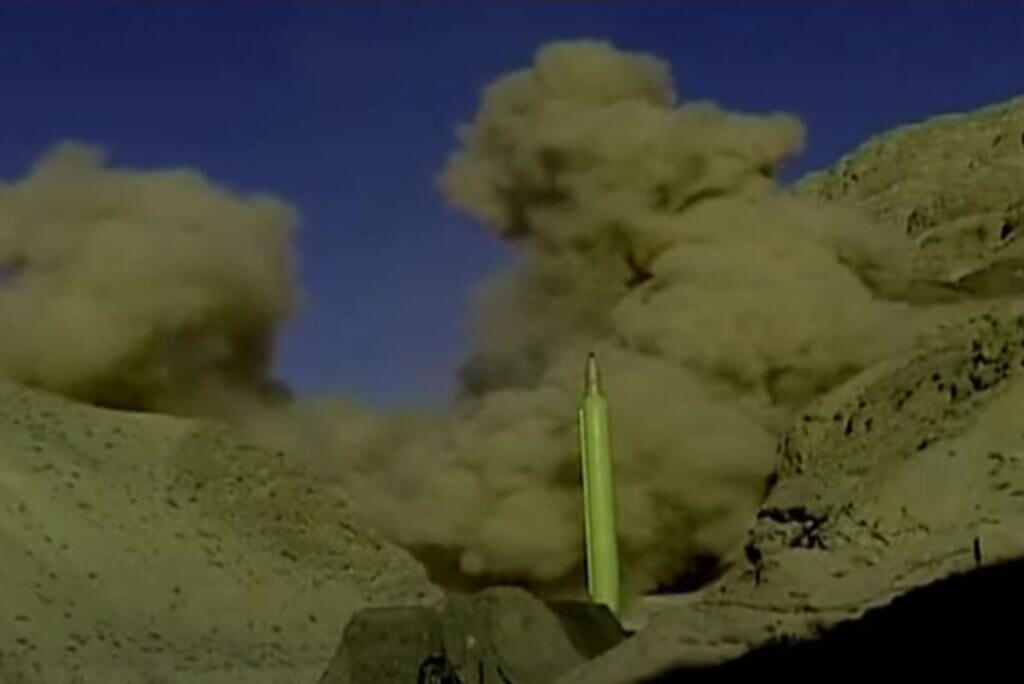Some followers of Yeshua are deflecting, if not avoiding, the “painful” truth of believing in the Second Coming.
“Why would it be necessary for Messiah to come twice?” the doubtful ask. “Didn’t He do it right the first time? And if he is the Jewish Messiah, as you claim, where in the Jewish Scriptures does it say anything about two comings of the Messiah?”
Two Pictures of Messiah
The issue of two comings of the Messiah is neither non-Jewish nor particularly unusual to Jewish thought. For two millennia, the rabbinical community has been discussing, pondering and conjecturing the possible ways to resolve paradoxical and seemingly contradictory references to the Messiah in the Jewish Scriptures. On one hand, the Scriptures present a picture of the Messiah reigning:
“The kings of the earth set themselves, and the rulers take counsel together, against the Lord and against His anointed … He who sits in the heavens laughs; the Lord ridicules them … [saying] ‘I have installed My king on Zion, My holy hill” (Ps. 2:2, 4, 6).
“‘The days are coming,’ says the Lord, ‘that I will raise up for David a righteous Branch, and he shall reign as king and deal wisely'” (Jer. 23:5a).
In these portions of Scripture and in many others (Gen. 49:10; Num. 24:17; Ps. 45:6,7; 110:1-7; Is. 2:1-4; 11:10; Zech. 14:3,4, 16 and more), Messiah is pictured as ruling and reigning over the enemies of God. This is a time of peace and joy; Israel is the chief of nations again, and the Lord and the Davidic throne are gloriously established in Jerusalem.
But alongside this exalted scene we also see the picture of Messiah rejected:
“… Messiah shall be cut off and shall have nothing” (Dan. 9:26a).
“Surely, He took up our pain and bore our suffering yet we considered him punished by God, stricken by him, and afflicted … Yet who of his generation protested?” (Is. 53:4, 8b NIV).
“But I am a worm, and not a man, scorned by everyone, despised by the people. All who see me mock me; they hurl insults, shaking their heads … you lay me in the dust of death …they pierce my hands and my feet…” (Ps. 22:6a, 15c, 16b NIV).
In these portions and many others (Isaiah 49:7; 50:6; Ps. 69:4-22; Zech. 11:12 and more), Messiah is seen as rejected and suffering in innocence for the sins of others, even as Israel is in spiritual blindness and judgment. Two different works of Messiah are presented:
- He will suffer and die for sins.
- He will reign and rule in peace.
These two contrasting Scriptural pictures of the Messiah have brought about various theories of how the Messiah would be both reigning, yet rejected; a celebrated victor while also a sacrificial victim.
Many ideas about Messiah are quite prevalent in rabbinical literature. There are the ideas of a resurrected Messiah, a leper Messiah, two Messiahs (“Messiah Son of Joseph,” who will innocently suffer as Joseph suffered innocently and “Messiah Son of David,” who will reign as David reigned), a beggar Messiah and more. Traditional Jewish scholarship has worked to understand these two very different pictures of the Jewish Messiah.
Two Comings of Messiah Revealed
The Prophet Hosea speaks to the subject as well, as he presents God speaking to wayward Israel:
“I will again return to My place until they acknowledge their offense and seek My face. In their affliction they will earnestly seek Me” (Hos. 5:15).
We see God offended at Israel’s sins and “return [ing] back to [His] place [heaven] until they acknowledge their offense.” The implication is that when they “acknowledge their offense,” He will return to them. This is clearly stated in Israel’s response to the Lord’s leaving:
“Let us acknowledge the LORD; let us press on to acknowledge Him. As surely as the sun rises, he will appear; he will come to us like the winter rains, like the spring rains that water the earth” (Hos. 6:3 NIV).
Though He had left, they had confidence He would also certainly reappear. There was hope in the Lord’s statement that their admission of guilt would bring about His return. In light of all this discussion it should surprise no one that the Messiah Himself would come and clarify these apparently contradictory pictures of His work. Similar to the portion in Hosea, Yeshua says to Israel:
“You shall not see me again until you say ‘Blessed is He who comes in the name of the Lord’“ (Matt. 23:39b).
Following Yeshua’s death, burial, resurrection and ascension (going back to His place), Peter proclaims to the Jewish crowds in Jerusalem:
“Therefore repent and be converted, that your sins may be wiped away, that times of refreshing may come from the presence of the Lord, and that He may send the One who previously was preached to you, Jesus Christ, whom the heavens must receive until the time of restoring what God spoke through all His holy prophets since the world began” (Acts 3:19-21).
The New Covenant revelation regarding the two works of Messiah is not new. It is a clarification and fulfillment of what the Jewish Scriptures prophesied: that Messiah would come to die for our sins, be raised from the dead, go back to His place and return when our people acknowledge their guilt and call out to Him. As Joseph was at first rejected by his brothers, then later accepted; and also as Moses was first rejected by Israel, then later was accepted, so also Messiah would be rejected and later accepted.
The return of the Messiah is mentioned many times in the New Covenant (Matt. 24-25; I Thess. 1:10, 4:13-5:9; Rev. 22 and more). This is because the Jewish Scriptures will be fulfilled in every detail. Just as Messiah had to suffer and die for sins, so He will also return to reign and bring peace.
The Jewish Scriptures predict that one day our people will “look to Me, whom they have pierced through. And they will mourn over him as one mourns for an only child” (Zech. 12:10) at His Second Coming. So look to Him now, trust in the atonement He made by His death for your sins and receive the new life that He gives to all who come to Him. {eoa}
Dr. Sam Nadler is a Jewish believer in Jesus who has been in Messianic ministry for more than 40 years. Sam is the president of Word of Messiah Ministries, which is bringing the Gospel to the Jew first but not to the Jew only and planting Messianic Congregations in Jewish communities worldwide. To encourage and equip the body of Messiah in our shared calling, Sam is invited to speak in churches across the country and has written multiple books on Jewish evangelism, discipleship and the Feasts of Israel. For more information and resources, to subscribe to Sam’s new podcast or to invite Sam to speak at your church, visit: www.wordofmessiah.org.
See an error in this article?
To contact us or to submit an article






















